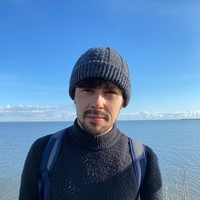- Reader and writer of the Humanities.edit
Research Interests:
Defining the subject is contentious. Defining the subject within a colonial/postcolonial context is as precarious as dancing on a knife's edge. It is only with the tenacity of a tightrope walker that one should enter the discussion.... more
Defining the subject is contentious. Defining the subject within a colonial/postcolonial context is as precarious as dancing on a knife's edge. It is only with the tenacity of a tightrope walker that one should enter the discussion. Balancing between bludgeoning metanarratives-depicting the world shaped by Western teleology-on one side, and romanticised generalisations-conforming to the objectification of being shaped by the mirror-like sheen of Otherness-on the other. To widen the edge and to gain more grounding I would argue that there is a need to readjust the way the subject is not only defined, but more importantly, understood. It is this task that I will set upon for the topic of this paper.
Research Interests:
What does it truly mean to be Post-human? Within this investigation, I will question the implications of an intellectual framework that posits a Beyond human and illustrate how it promotes the neoliberal ideology of self-marketisation.... more
What does it truly mean to be Post-human? Within this investigation, I will question the implications of an intellectual framework that posits a Beyond human and illustrate how it promotes the neoliberal ideology of self-marketisation. What I am concerned with is how the posthumanities disregard the phenomenological epistemology of the everyday; the lived experience. Through applying the literature of medical anthropologists, I seek to question the implications of implying a beyond-human.
Research Interests:
The early twentieth century marks a significant change in ontological enquiry with Martin Heidegger being the dominant protagonist. Interestingly, Heidegger not only branched away from the canonical tradition of Western metaphysics that... more
The early twentieth century marks a significant change in ontological enquiry with Martin Heidegger being the dominant protagonist. Interestingly, Heidegger not only branched away from the canonical tradition of Western metaphysics that had been in place since Plato, yet his political “turn” in 1933, seems somewhat contradictory to his central doctrine of absolute-resoluteness. Within this investigation I will approach this shift in ontological enquiry with a conceptual historical approach. I will highlight the inseparability of the Ontic (human) and the Ontological (Dasein), as both of which are inherent and reliant upon one another. It is thus that I hold the premise that all enquiry is in relation to its utterance. The enquiry is influenced and determined by the enquirer, philosophy does not occur within a vacuum. The socio-political environment is a high determinant of metaphysics. To quote Karl Marx, ‘men make their own history, but they do not do so freely, not under conditions of their own choosing, but rather under circumstances which directly confront them, and which are historically given and transmitted.’ It is this notion that is distinctly in relation to metaphysics as I stand by men make their own ontological conceptions in much the same way as Marx determines history. The aim therefore for this paper is to demonstrate the socio-political influence upon Heideggerian philosophy and those influenced by his practice. I will demonstrate that early twentieth century Germany experienced a period of acceleration which fractured the temporal succession of Self-World conceptions.
Research Interests:
Research Interests:
This investigation sets out to analyse Woodstock, 1969 upon the backdrop of the Heideggarian theme Being-towards-death. By focusing on the momentum behind the event, the importance of the festival itself crumbles and a real depth to the... more
This investigation sets out to analyse Woodstock, 1969 upon the backdrop of the Heideggarian theme Being-towards-death. By focusing on the momentum behind the event, the importance of the festival itself crumbles and a real depth to the iconic countercultural occasion emerges. Under the yoke of nuclear terror, the countercultural movement had to carry the potentiality of their own death heavy on their shoulders. What this paper sets to argue, is that this threat of nuclear annihilation was a unique experience that led to a mass exodus towards an authentic societal model.
